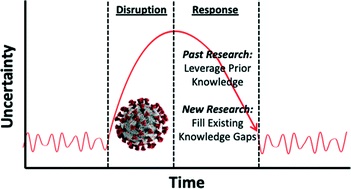
A little good news in the world of SARS-CoV-2 (the scientific name for the virus that causes COVID-19). Dr. Stuart Khan, a Professor of Civil & Environmental Engineering, University of New South Wales writes about a new article in the journal Environmental Science: Water Research & Technology.
The researchers asked if pandemics, such as the one caused by the coronavirus, will lead to a shift in water and water reuse regulations. According to the article, the treatment systems we’ve set-up appear robust enough to deal with this virus and future ones. According to Dr. Khan’s review…
Based on the combination of both lower source water concentrations and higher removal through treatment, they argue that we should expect much lower exposures to SARS-CoV-2 in drinking water than the enteric viruses targeted by existing regulations and treatment.
In conclusion, the authors state that so far, the preliminary findings provide reassurance that SARS-CoV-2 is unlikely to be the ‘black swan’ that will reset requirements… Current requirements for robust, multiple-barrier treatment systems evolved to reliably control a diversity of waterborne pathogens identified in the past. This same approach appears to be a solid foundation for the control of emerging and future pathogens as well.
According to the technical article, an important study of SARS-CoV2 in wastewater is being funded by the State Water Board:
The State [of California] is evaluating SARS-CoV-2 nucleic acid concentrations in the raw wastewaters of multiple California facilities covering the period between 2019 and 2021.15 These data will be used to determine if SARS-CoV-2 (or other potential challenges brought to light by the current pandemic) will be a driver for stricter treatment requirements
for Direct Potable Reuse (DPR).